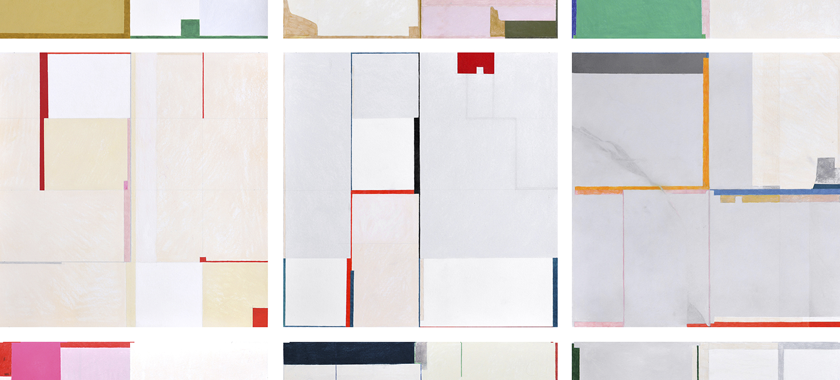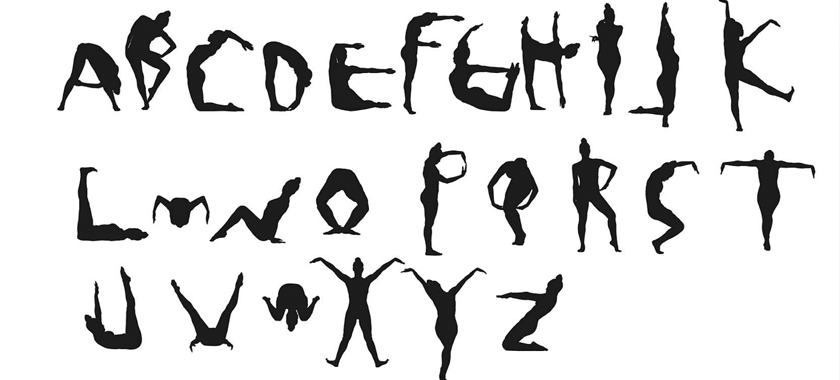
How to Write a Strong Application
Your words represent you, your point of view, and ultimately tell the story of why your work should be supported.
With limited time to designate to writing grant applications, how can you make the most of your time and energy? At NYFA, we encourage artists to submit targeted applications that are more likely to resonate with reviewers. This post, informed by the expertise of Kelly Olshan, Program Officer, NYFA Learning, with additional insights from Mollie Quinlan-Hayes, Sarah O’Connell, and Anna Wang of the NYFA Grants team, delves into topics including the importance of:
- Answering application questions directly;
- How to underscore the value of your work; and
- How best to address the very human panelists, curators, and funders that you are appealing to for opportunities and funding
We also share tips for making sure that your materials have the best chance of success with reviewers.
The Basics
First and foremost, read the guidelines carefully. Some applications have specific application requirements–including age, geography, artistic discipline, and more. Once you determine that you are eligible for an opportunity, consider your application materials. Make sure that you understand what support materials are required and in what formats, so that you can provide a complete application and build in extra time to gather the materials needed.
Many organizations (like NYFA!) hold information sessions on their grant programs. Take advantage by attending and getting your questions answered. If you have questions that aren’t answered in the FAQs or info session, email the grant coordinator.
As you go through the application, be sure to directly answer the questions that are asked. While this may appear obvious, it’s worth underscoring as it can have real ramifications in the decision-making process. Consider the following: many opportunities ask panelists to evaluate prospective candidates with a scoring system that is tied to the written questions.
For instance, say Art Foundation Z asks its panelists to rate how much the residency would benefit the artist’s career development on a scale of 1-5, 5 being the highest. Accordingly, in the application, there’s a question that asks, “How would this residency benefit your career development?” If in the application, you talk about an upcoming project of yours, rather than addressing how this residency would benefit your career, the panelists are going to have a hard time giving you a high rating for that section because you didn’t answer the question.
In short: questions are asked for a reason. They reflect the funder/residency’s priorities, so make sure to speak to them.

Describing Your Work
Be sure to explain–in simple, concrete terms–what your project or work actually is about. “I’ve read many complex narratives where I get to the end and I still don’t understand the basics of what the project is, or what the applicant is really asking for money to do,” says Kelly Olshan, Program Officer, NYFA Learning, when referencing project-based applications. “Instead, they focus on high level artspeak and heady concepts that can have their place in a grant application, but only if they are grounded in what many call the basic ‘Who, What, When, Where, and Why’ of a proposal,” she added.
“In other words: before you go into detail about the unique musical components of your soundscape, the reader needs to know that you are requesting funding for a 50-minute outdoor concert series to take place at a venue in Queens,” Olshan continued.
The All Important “Why”
In addition to providing reviewers with an understanding of your work, it is helpful to underscore why your work is important, and who it might benefit. “To extend the above example, why is it important that the 50-minute outdoor concert in Queens happen? Will it serve an audience that doesn’t typically have access to this type of music? Is it a new audience for your work in particular? In submitting an application, you’re asking either for 1) public and/or 2) someone else’s money. Don’t leave it up to the reviewer to guess the value, make clear why this thing that you are doing is worth funding,” says Olshan.
This can be the most intimidating part of your application, as it can feel like a big thing to justify, but most artists already have a pretty compelling Why–it’s just about getting it on paper. If you didn’t already have a powerful Why, you wouldn’t be bothering with all the skill-based, intellectual, and emotional labor it takes to make your work, much less 1) applying for grants and 2) reading this blog about how to fine-tune your grant writing skills. It’s there–just write it down.
If you struggle to write it down, we recommend telling a friend about why you really care about something (or just saying it aloud to yourself), and recording yourself. Take a break from it, come back to it, and try to think about it from the perspective of someone who doesn’t know you or your work. Does it tell a clear and cohesive story? If there are questions that arise or gaps that need filling in, try re-working so that you are best and most accurately representing yourself and what you can bring to the table.

Panelists are Humans, Too
Says Olshan: “While there are many very generous reviewers, it’s likely by the time a panelist has gotten to your submission they’ll have already read dozens if not hundreds of applications. Write for a real human who may be quite tired and who may know nothing about you or your work.”
Keep this advice in mind by making things as clear and easy for them to digest as possible.
To that end, you will not be penalized for being under word count. If you can answer the question in less than the maximum allotted word count–do it! As long as you answer the question thoughtfully and succinctly, reviewers will appreciate that.
Application Tips
Things to think about and ask yourself before clicking “submit.”
–Written Responses: Draft your written (narrative) responses well ahead of time–following the word or character-count provided–outside of the online grant application form. A separate word document will help with your editing process, ensure that you don’t lose your draft, and enable you to have an accessible copy on file.
Before submitting, share your work with someone else–a mentor or friend that can provide an outside perspective on your writing. Another set of eyes will help to refine your materials, as well as catch any errors or inconsistencies. Be sure to save it, and then, finally, copy and paste into the online form.
–Work Samples: Work samples should be the strongest representation of your work and are often one of the main aspects of your application that reviewers will discuss. Videos: make sure your links and passwords are active throughout the review period. If uploading, give yourself ample time and double check the playback. We recommend trimming videos down to the exact section you want your reviewers to see (don’t make them work too hard). For more on work samples, click here.
–Your Budget: If the opportunity you are applying to requires a budget, make sure that your budget is balanced. Meaning: do your expenses equal your income? Funders care about this because they want to see how you are going to cover all the expenses associated with your project. Triple-check your math to make sure everything adds up correctly. Your budget tells a story just like your narrative does.
–Overall: Be thoughtful about your application. Don’t rush things, give yourself both the time to complete it and then review it. Check that the links you provide are working, that your numbers add up, and that there are no misspelled words. A solid application will communicate to reviewers that you will be a good steward of their funds.
For more articles on applications, check out these posts:
- Don’t Miss a Deadline: Find and Track Applications
- The Artist Statement: 5 Do’s and 5 Don’ts
- How to Write an Effective Project Narrative
- Representing Your Artwork Online
You can find more articles on arts career topics by visiting the Business of Art section of NYFA’s website. Sign up for NYFA News and receive artist resources and upcoming events straight to your inbox.